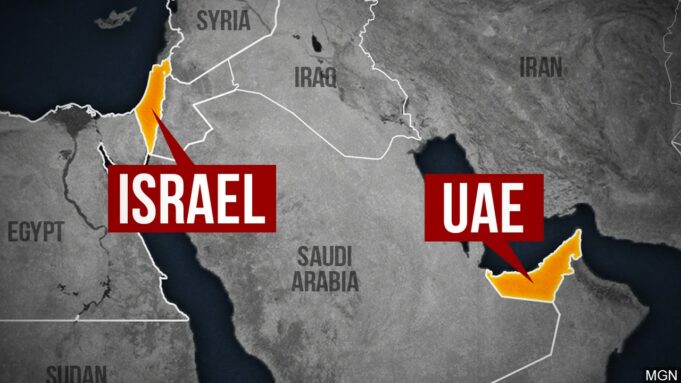U.S. President Donald Trump’s son-in-law and adviser, Jared Kushner, has begun a tour of Persian Gulf Arab countries to push them to follow in the footsteps of the United Arab Emirates (UAE) in normalizing ties with Israel.
Kushner visited the UAE capital on Aug. 31 accompanying a joint Israeli-U.S. delegation on the first commercial flight from Tel Aviv to Abu Dhabi, which agreed on Aug. 13 to establish full diplomatic relations.
Concluding his trip, the White House adviser predicted the next day that all other Arab states will gradually follow the UAE in establishing ties with Israel.
Asked by UAE state news agency WAM whether he believed all 22 Arab states could recognize the Israeli regime, he replied, “100 percent.”
“I believe that it is logical for them to do it and I believe it is the right thing to do over time,” he added.
“I think thanks to the UAE leadership there will be a much bigger coalition. [There will be] what I call ‘a vocal majority’ that will be in favor of normalizing. I think the vocal minority who have been against it will be more and more isolated in the region.”
Asked when the next Arab country could normalize ties, Kushner said, “Let’s hope it’s months.” However, he did not name the country.
From the UAE, Trump’s son-in-law flew to Bahrain and then Saudi Arabia and is expected also to visit Qatar.
In Bahrain, home to the U.S. Navy’s Fifth Fleet, he met with King Hamad bin Isa Al Khalifah.
During the meeting, King Hamad praised what he called “the United Arab Emirates’ historic and continued efforts to support the interests and causes of Arab and Islamic nations, and their determined endeavors to reach a just and comprehensive solution that guarantees the Palestinian people their legitimate rights and lasting peace in the region,” according to the Bahrain News Agency.
The Bahraini monarch, however, said stability in the region “relied on” Saudi Arabia, hinting that it will not strike a deal with Israel before Riyadh.
In Saudi Arabia, Crown Prince Mohammed bin Salman and Kushner stressed the need for the resumption of Israeli-Palestinian negotiations, the Saudi Press Agency (SPA) reported.
Bahrain has praised the UAE-Israel deal, while Riyadh has reacted more cautiously, saying it will stand by a 2002 Arab peace initiative on the Israeli-Palestinian conflict, without condemning the agreement.
The Palestinians have unanimously censured the UAE-Israel peace deal, which runs counter to a long-standing Arab consensus that any normalization of ties with the Tel Aviv regime has to come in the context of the settlement of the Israeli-Palestinian conflict and the establishment of a sovereign Palestinian state.
They say the UAE, as an important Arab player in the region, stabbed fellow Palestinians in the back by making peace with Israel before the regime ends its occupation of their motherland.
The UAE claims the peace deal severed the Palestinian cause by pulling Israel back from the verge of acting on its latest land grab plot and annexing a large part of the occupied West Bank.
The Palestinians, however, dismiss the claim, saying Abu Dhabi and Tel Aviv had long been in talks behind the scenes to pave the way for normalization.
Israeli officials have also rebuffed the UAE’s claims, saying the annexation scheme has only been put on hold for now.
‘Netanyahu visited UAE in 2018’
In a new report that debunked the UAE’s claims, Israeli newspaper Yedioth Ahronoth said Prime Minister Benjamin Netanyahu had secretly traveled to the UAE two years ago for talks with Abu Dhabi Crown Prince Mohammed bin Zayed Al Nahyan.
Citing diplomatic sources, the report said the trip was set up by director of Israel’s spy agency Mossad, Yossi Cohen, who traveled to Abu Dhabi together with Netanyahu.
Netanyahu’s advisor Meir Ben-Shabbat also held a separate meeting with Emirati and American officials in 2019 in Washington, the report said, adding that Israeli Ambassador to the U.S. Ron Dremer was involved in those talks.
Hinting his clandestine contacts with regional leaders, Netanyahu told reporters he had held “many … unpublicized meetings with Arab and Muslim leaders” in addition to publicized ones, like his visit to Oman in October 2018 and his meeting with Sudanese interim leader Abdel Fattah al-Burhan in Uganda in February 2020. (PressTV.com)













